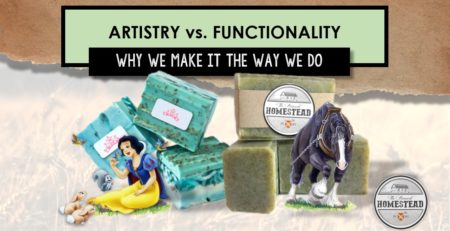
CS Lewis on Being Gracious when Socialists Take Power
I try not to be very political online. That’s the honest truth, and it’s not because I don’t have an opinion on the subject, but because I don’t find online debating (which usually is the result of sharing your views with the world) particularly fruitful or constructive in most cases.
Personally, I like to reserve those discussions for in-person conversations with folks who I can interact with in real-time, and who can hear my tone and I can share my heart with on an issue, and vice versa. Yet, I know many people online who I don’t necessarily have opportunity to meet up with in person who I’m seeing react to the current political landscape, and our country’s continuing shift in a more liberal direction, with expressions of sincere concern.
As a conservative evangelical, I share their sentiments. I’m also unnerved by the proposed agenda of those on the political left, and even more unnerved by the proposed agenda of those on the far political left. It’s not a direction I want the country to go in, especially not for the future of my children.
What I want to do in this post is to offer a word not just to counter potential discouragement with encouragement, but a word to try and help counter your anxiety with action. Rather than us ringing our hands at all the “what ifs” of an increasingly socialist America, what can we be doing practically on an individual level, or on a family level, in the event our country does move further in a socialist and secular direction?
Obviously, when it comes to the future, none of us ultimately know how things will turn out. Even so, the past can sometimes be a good indicator of the future, especially as a society tries to repeat things that have already been tried before. The example I’m thinking of is the time when conservatives in Britain and the great Winston Churchill, nearing the end of World War II, lost their country’s general election to Clement Attlee and the liberal, socialist-leaning, Labor Party.
You may remember from 9th grade history class that in the wake of World War II, Europe was completely shell-shocked. Its economy was hurting; its infrastructure battered; its supply chain interrupted; and its population ready to move on.
Exactly what nations like Britain would be rebuilt into was the pressing question. As it turned out, a socialist vision of a national welfare state in which the Government would lead the charge in all aspects of the nation’s recovery ended up being a very attractive option for voters. The Labor Party campaigned on the promise of providing better controls on food rationing, and the offer of state-funded programs and services including healthcare, childcare, education, housing, unemployment and disability benefits, supplemental retirement pensions, etc. Basically, their campaign promise was for government to take care of its citizens literally from “the cradle to the grave.”
All the while, Winston Churchill and the conservatives ran on more of a “for King and country” platform. Churchhill’s attitude was: “I know we’re struggling right now and our country is tired, but we’ve got to button up this war. We’ve got to keep pushing back against the overreach of bloodthirsty dictators. We’ve stopped Hitler’s Nazi Germany. To some degree, we’ve kept Stalin and the Soviet Union in check with the Grand Alliance. Let’s now hammer the remaining nails in Japan’s Imperial coffin.”(*Not An Actual Quote)
As I’ve already mentioned, the British people were tired of all the waring, so Attlee’s Labor Party took power and started implementing everything it had promised. By the time it was all said and done, a lot of Britain’s were helped by the new social programs.
The only problem with all of the Labor party’s new government programs was they had to be paid for somehow—that took the form of increased taxes. But, of course, if the private sector and a free market haven’t been allowed to do its thing, which at the time they hadn’t, the people could hardly be expected to have the money needed to pay those taxes. So, back and forth the political pendulum swung.
Not long after the Labor Party opened the door to their welfare state, Winston Churchill was elected again to a second term advocating for a more “traditional and free” Britain, as opposed to a socialist and dependent Britain.
The point is, the Labor Party’s socialist dream wasn’t all a bed of roses. In fact, for many of Britain’s citizens, the government’s controls on things like the rationing of food is something that got old quickly, especially since the war was over. Rationing doesn’t make a whole lot of sense in peacetime.
Interestingly enough, one of those British citizens who grew weary of the rationing was none other than C.S. Lewis, one of the great Christian writers and apologists of the 20th century.
Just to get it out on the table, Lewis was also the kind of guy who tried to stay out of politics. In fact, the story is told when Churchill was elected for a second term in 1951, he was invited by the Office of the Prime Minister to receive honors, but he declined the invitation, explaining:
“I feel greatly obliged to the Prime Minister, and so far as my personal feelings are concerned this honour will be highly agreeable…[However] there are…knaves who say, and fools who believe, that my religious writings are all covert anti-Leftist propaganda, and my appearance in the Honours List would of course strengthen their hands. It is therefore better that I should not appear there. I am sure the Prime Minister will understand my reason, and that my gratitude is and will be none the less cordial.”
C.S. Lewis, Dec. 14, 1951
“Narnia, Cambridge, and Joy,” p. 147
So, Lewis wasn’t a political guy, and he didn’t want to be known as a political guy. He was a theologian, and his loyalties were first and foremost to the Lord and his kingdom, as appreciative to Churchill and the conservative party as he was. With that said, Lewis did sometimes reference politics in his letters back and forth with his fan base in America. On several occasions he mentioned the rationing happening in Britain.
It was the pattern of many generous Americans to send gift packages across the pond to the people of Britain that included items and products that were simply too expensive to buy, or were outright unavailable to buy, in Britain’s socialist economy. Being a world renown author, C.S. Lewis was blessed to have several American fans who would regularly send him such care packages.
In a thank you letter to a Ms. Vera Matthews, Lewis once explained some of the things he found most helpful to receive in the mail:
“It is difficult to find any words in which to acknowledge your continued kindness…In sending to those behind Mr. Attlee’s Iron Curtain, you can never go wrong with meat, tea, and soap – soap for washing clothes that is; why it should be so I can’t imagine, but [bathroom] soap is never as scarce as the other kind.”
C.S. Lewis, November 24, 1947
The Collected Letters of C.S. Lewis., p. 812
In a letter he wrote to a Mr. Warfield Firor, Lewis expressed:
“I am completely at a loss when it comes to thanking you for your last parcel…A ham such as you sent lifts me up into our millionaire class. Such a thing couldn’t be got on this side unless one was very deep in the Black Market…And as for the cheese, I found I’d almost forgotten what real cheese tastes like.”
“I and all my friends are very deeply grateful; you have given an amount of pleasure which you, in your happier country, cannot realize.”
C.S. Lewis, October 1, 1947
The Collected Letters of C.S. Lewis., p. 806
Not long after that, in a second letter to Mr. Firor, Lewis wrote:
“[When I thanked] you for your grand present of the ham, that letter was written before tasting it; and now having done so, I feel that common decency demands further and heartier thanks.”
“The fate of the ham was this: we have a small informal literary club which meets…every Thursday for beer and talk, and – in happier times – for dinner. And last night, having your ham to dine off, we had a meal which eight members attended…the college kitchen supplied soup, fish and a savoury: and we had a delightful evening. This by English standards is a banquet rarely met with, and all agreed that they hadn’t eaten such a dinner for five years or more.”
C.S. Lewis, March 12, 1948
The Collected Letters of C.S. Lewis., p. 838
At the end of his March 12 letter, Lewis included a list of those who attended the rare dinner party, and I was tickled to see included another famous author we’ve all heard of who enjoyed Mr. Firor’s ham and cheese gift, namely J.R.R. Tolkein.
Then there was the generous gifts of a Mr. Edward Allen. Lewis thanked him writing,
“Thank you very heartily for not one, but two parcels: one containing stationary, and the other, which is so heavy I can hardly lift it, containing food. The latter I have not yet opened, but we are licking our lips in anticipation of investigating it later in the day.”
C.S. Lewis, March 29, 1948
The Collected Letters of C.S. Lewis., p. 846
Here’s another one:
“As I contemplate the label of your splendid parcel of 10th April – ‘Crisco, beef, ham, and so forth,’ six lines of it, I fall, at least in mind, into the sin of Gluttony!…”
C.S. Lewis, May 3, 1948
The Collected Letters of C.S. Lewis., p. 852
Just one more:
“Once more I have to send you my inadequate, but very sincere thanks, not only for the ‘tuxedo,’ but for the impending food parcel…The extent to which your folk have come to our rescue is amazing, and moving; I knew in a general way of course that very large quantities of gift food, clothing etc. were coming into Britain, but I was none the less surprised to read in a recent debate in the House of Lords that every household in the kingdom benefits by American aid…and has done so for the past two years. You may well be proud of yourselves.”
C.S. Lewis, May 29, 1948
The Collected Letters of C.S. Lewis., p. 854
The point of all these letters, and the point I’m trying to get across in quoting them, is the example of generosity that was extended to those affected by hard times (including hard times arguably complicated by a socialist government), by those less affected by it. For struggling Britain’s in 1945 and thereabouts, that was the generosity of free and loving Americans who were more safely and stably positioned on the other side of the Atlantic to offer assistance.
Fast-forward to modern times—now America itself appears to be going down a more socialist road,
and the question on a lot of people’s minds is what can we expect (and not just ‘expect,’ but what can we ‘do’) in anticipation of walking in Europe’s footsteps?
I’ll tell you, one of the things we can do is plan to be generous!
In other words, don’t expect the government to care for people. Let the Church and let everyday Good Samaritans help care for people. It’s not the job of Uncle Sam to meet everybody’s needs. If a person can’t care for themselves, let the Body of Christ step up and do what the Body of Christ is uniquely commissioned to do. Whether that’s feeding the hungry, or teaching kids to read, or giving somebody work, or keeping an eye on an elderly neighbor – whatever the need – before expecting government to meet that need, consider how you can meet the need yourself.
Obviously, it makes it difficult to meet others needs when you yourself are apart of the group who has the needs. But assuming you’re fortunate enough to be removed from a certain hardship, or assuming it’s in your ability to remove yourself from a certain hardship, be a Ms. Matthews”, or a “Mr. Firor”, or a “Mr. Edwards” in your sphere of influence and be about sending care packages to others.
My advice to all those reading this, regardless of what direction our country goes in, is to create an ocean of separation between you and dependency on the welfare state. Instead of relying on government to provide your healthcare, your child care, your education, your housing, your income in seasons of unemployment or retirement, determine to meet as many of those needs yourself, or with the help of your family, your friends, or your church first.
If socialism is in our future, as many on the left desire it to be, one of the best practical things you can do is to create a hedge of independence, as much as you’re able, from that welfare system. The less you are dependent on government the more you’re in a position to help others who have no other choice but to depend on government.
Can socialism help people? Sure it can! Just understand it can also make people dependent, and in making people dependent, people are left miserable. Can you in your greater independence help everybody? Of course not! But, those you do help will truly be helped. Not by giving them hand-outs, but by giving them a hand up. Or, in the words of Winston Churchill
“The inherent vice of capitalism is the unequal sharing of blessings. The inherent virtue of Socialism is the equal sharing of miseries.”
Winston Churchill, Oct. 22, 1945
Speech Delivered to the House of Commons
As much as it depends on you, learn to live independently, and in your independence, learn to live generously. I’ll end with the following quote by C.S. Lewis, again writing to one of his generous American friends. This one is dated sometime after the Labor Party lost their own reelection bid bringing Churchill and the conservatives back to power. Lewis writes to his friend,
“I’m afraid it would be sheer dishonesty to pretend that we now have any kitchen needs; this [conservative] government has done a magnificent job in getting us on our feet again, and a few weeks back, we solemnly burnt our Ration Books. Everything is now ‘off ration,’ and though at first of course, prices went up with a rush, they are now dropping.
But cheer up, if our friends the Socialists get back into power, you will be able to exercise your unfailing kindness once more by supplying us, not with little luxuries, but with the necessities of life!”
C.S. Lewis, Sept. 25, 1954
“Narnia, Cambridge, and Joy,” p. 509
The takeaway is “be ready, faithful Christian.” “Be ready, Good Samaritan.” No doubt, America’s political pendulum will continue to swing back and forth, and a socialist, progressive agenda will eventually be pushed to the forefront. When that happens, prepare to be generous. Show the government they don’t have to tax you and your neighbors more to care for the welfare of others. You’re capable of helping people just fine on your own. Just be sure you do so.[/vc_column_text][/vc_column][/vc_row]











Leave a Reply